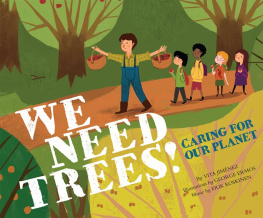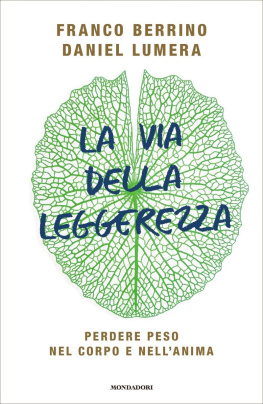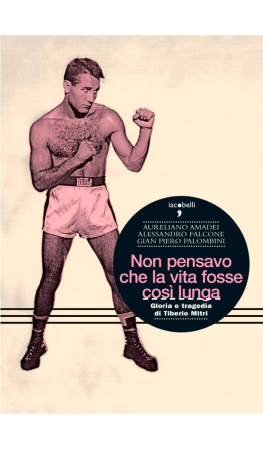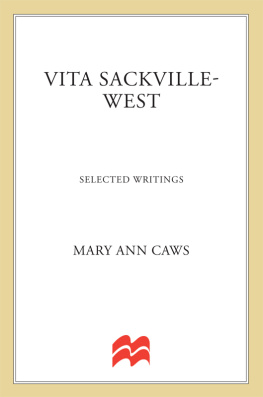Marina and Sergey Dyachenko
VITA NOSTRA
Translated by Julia Meitov Hersey
We would like to thank everyone who assisted with the English language publication of VITA NOSTRA. First and foremost, our thanks to Julia Meitov Hersey, who translated the novel simply because she loved it. We are greatly indebted to Robert and Mark Gottlieb of Trident Media Group for their tireless encouragement and assistance in the publication process. Thanks to Kimberly Killon for the cover of the digital edition and to Sergey Berezhnoy and Michael Nazarenko for all their insights. We are also beholden to Lev Grossman, a novelist and a literary critic, for his invaluable advice. And special thanks go to film director Timur Bekmambetov, director and screenwriter, and his colleague, producer Olga Kharina.
Marina and Sergey DyachenkoThe pricesoh, the prices were simply ludicrous! In the end, Mom rented a tiny room in a five-story building within twenty minutes of the shore, with windows facing west. The other room in the one-bedroom apartment was occupied by a young couple, with whom they would have to share the kitchen, bathroom, and toilet. Those two are on the beach the whole day, reasoned the landlady. They are young They dont need much. The sea is right there, you can almost see it out of your window. Pure paradise.
The landlady departed, leaving behind two keys, one for the main entrance and one for the door to their room. Sasha dug her faded, last years swimsuit from the bottom of the suitcase and changed quickly in the bathroom where someone elses underwear was drying on the space heater. She felt joyful and giddy: just a few more minutes, and hello sea, here we come. Waves, salt on her lips, deep khaki-colored waterall that was forgotten during the long winter. Transparent water changing the color of her skin to yellow-white. Swimming toward the horizon, feeling the sea glide over her stomach and back, then diving deep down, staring at the rocks on the bottom, seaweed and tiny speckled fish
Should we eat first? Mom asked.
She was exhausted by the long trip in the stuffy economy class seats, the apartment search, negotiations with potential landlordsnone of it was easy.
But Mom, we came to spend time at the beach.
Mom lay down on a couch, a pack of fresh linen under her head substituting for the pillow.
Want me to run down and get some doughnuts? Sasha aimed to be a dutiful daughter.
Were not going to live on doughnuts here. We have a decent kitchen.
Cant I at least take one little dip?
Fine. Mom closed her eyes. Get some eggs and yogurt on the way back. Oh, and bread, and some butter.
Sasha threw a sundress over the swimsuit, slid her feet into a pair of sandals, grabbed one of the towels provided by the landlady and ran outside, into the sunshine.
She had no proper names for the blossoming trees that grew in the yard, but decided to call them peacock trees. Behind the unevenly trimmed bushes began the street that led to the shore. Sasha decided it was going to be called just thatThe Street That Leads to The Sea. The street sign bore the real name of the street, plain and insignificant. It happened so oftenbeautiful things had stupid names, and the other way around
Swinging her bag, she walked, no, ran, down the street. People moved in a thick throng, some carrying inflatable mattresses and large sun umbrellas, others burdened only with a beach bag. Children, as expected, were covered by melting ice cream, and their mothers scolded them and rubbed the spots with their crumpled handkerchiefs. A wide smile on her lips, Sasha walked toward the sea, hot asphalt burning through the soles of her sandals.
They made it.
They made it despite the lack of money, despite Moms problems at work. They made it to the seaside, and in only fifteen, no, ten minutes, Sasha would dive into the water.
The street twisted. The sidewalk was almost entirely covered with advertisements for tourist attractionsThe Swallows Nest, Massandra, Nikitsky Botanical Gardens, Alupka Palace The din of video games filled the air. A mechanical voice coming from a metal contraption in front of the arcade offered palm reading. Sasha stood on tiptoes and finally saw the sea.
Restraining herself from breaking into a gallop, she ran down a steep hill toward the high tide, toward the happy squeals of children and the music of beachside cafes. So close.
Of course, the closest beach had an entrance fee. Not letting herself be annoyed, Sasha ran around the fence, jumped off a low concrete railing, and felt the pebbles crunch under her feet. She found a spot on the rocks, threw her towel and sundress down on the beach bag, took off her sandals and made her way down, wincing from the gravel biting into her feet. As soon as she got to the water, she plopped on all fours, dove in and swam.
This was happiness.
In the first second, the water seemed cold; in the second, warm, like freshly-drawn milk. Right near the beach, seaweed and fragments of plastic bags swayed gently in the waves, but Sasha swam further and further away, and the water became clear and changed color, leaving behind inflatable mattresses and children with bright-colored floaties, the sea opened all around her and a scarlet buoy flashed like a sign of perfection between two stretches of turquoise cloth.
Sasha dove, opened her eyes and saw a school of gray elongated fish.
* * *
On the way back she ranMom was probably worried. The uphill road seemed unexpectedly long and steep. In the store, a harried saleswoman sold bread, eggs and potatoes, and the queue was long and solemn. Sasha secured her spot with a sturdy tanned woman (Youll tell them Im behind you, wont you please?) and ran down The Street That Leads to the Sea into the garden with the peacock trees.
The man stood near the rental agency, a green booth with permanently closed shutters. Despite the heat, he wore a dark denim suit. Under the peak of his dark-blue cap his face had a jaundiced, waxy tint. Dark glasses reflected the sun rays, but Sasha managed to catch his glance. She cringed.
She looked away from the strange man, entered the hallway that smelled of many generations of cats, and walked up to the second floor, to the door upholstered in black faux-leather, with a tin number 25.
* * *
Every morning they woke up at four, when their neighbors, the young couple, returned from a nightclub. The neighbors stumbled up and down the corridor, made tea, made the bedsprings creak and eventually fell quiet; Sasha and her mother dozed off again and woke up next around seven thirty.
Sasha made instant coffee for both of them (the kitchen sink brimmed with dirty plates the neighbors apologized profusely for the mess, but never did the dishes), and they headed for the beach. On the way to the shore, they bought little cups of yogurt, or freshly cooked corn sparkling with salt crystals, or jam doughnuts. They rented one plastic lounge chair to share, spread their towels over it and ran toward the water, stumbling on the sharp gravel and hissing from pain. They plopped into the water, dove in, and lingered in the waves for half an hour and even longer.
On the second day Sasha got a sunburn, and Mom smeared yogurt on her shoulders to calm the sting. On the fourth day they went on a harbor cruise, but the waves were choppy, and both of them felt a touch of motion sickness. On the fifth day there was a real storm, and half-naked lifeguards strolled around the beach, announcing: Cant swim alligators are abound, as Sashas mother quoted from an old childrens rhyme. Sasha played with the waves and once managed to get slammed by an errant rock; the painful bruise took a long time to heal.
In the evenings the whole town was drowned in music streaming from the nightclubs. Clusters of guys and girls armed with cigarettes stood near the kiosks or box office windows, sat around old iron benches and participated in social engagements expected of adolescent mammals. Occasionally, Sasha caught their appraising looks. She did not like those guys with their obnoxious, overly made up girlfriends, yet she felt uneasyit was embarrassing for a normal sixteen-year-old to be vacationing with her mother like a little girl. Sasha would have liked to stand just like this, in the center of a noisy group, leaning on a bench and laughing with everybody else, or to linger in a caf, sipping gin and coke from a tin can, or to play volleyball on a square patch of asphalt, split by long cracks like an elephant hide. She walked by, pretending she had some urgent, much more fascinating business to attend, and spent her evenings strolling around with her mother in the park or along the boardwalk, gazing at the creations of the never-ending street artists, haggling over lacquered shells and clay candleholders, doing all these really nice and not-at-all-boring thingsbut the peals of laughter coming from the teenage clusters sometimes made her sigh heavily.












